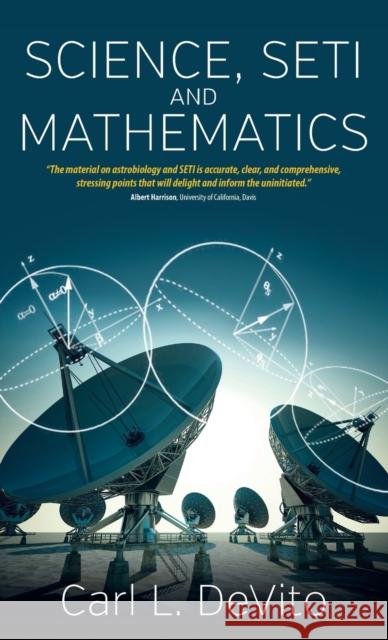Science, Seti, and Mathematics » książka
Science, Seti, and Mathematics
ISBN-13: 9781782380696 / Angielski / Twarda / 2013 / 220 str.
Science, Seti, and Mathematics
ISBN-13: 9781782380696 / Angielski / Twarda / 2013 / 220 str.
(netto: 474,01 VAT: 5%)
Najniższa cena z 30 dni: 495,74 zł
ok. 22 dni roboczych.
Darmowa dostawa!
Mathematics is as much a part of our humanity as music and art. And it is our mathematics that might be understandable, even familiar, to a distant race and might provide the basis for mutual communication. This book discusses, in a conversational way, the role of mathematics in the search for extraterrestrial intelligence. The author explores the science behind that search, its history, and the many questions associated with it, including those regarding the nature of language and the philosophical/psychological motivation behind this search.
"This is a very interesting and enjoyable book to read. It makes a number of very complex subjects accessible to the typical reader. It has an unconventional structure that I find very effective at holding the readers attention and making it a real page turner." · Craig T. Palmer, University of Missouri"The story of math, itself a story of discovering our place in the universe, is presented in three ways and the author is a genius when it comes to making math accessible and palatable to readers with minimal interest and background...The material on astrobiology and SETI is accurate, clear and comprehensive, and up to date, stressing points that will delight and inform the uninitiated." · Albert Harrison, University of California, DavisMathematics is as much a part of our humanity as music and art. And it is our mathematics that might be understandable, even familiar, to a distant race and might provide the basis for mutual communication. This book discusses, in a conversational way, the role of mathematics in the search for extraterrestrial intelligence. The author explores the science behind that search, its history, and the many questions associated with it, including those regarding the nature of language and the philosophical/psychological motivation behind this search.Carl L. DeVito is a member of the emeritus faculty of the Department of Mathematics at the University of Arizona. He has developed one of the most widely cited proposals for a language based on plausibly universal scientific concepts and has contributed to several edited volumes on cosmic communication. His other scientific work includes many papers on pure and applied mathematics and three books: Harmonic Analysis-A Gentle Introduction (2006), Functional Analysis (1978), and Functional Analysis and Linear Operator Theory (1990).











